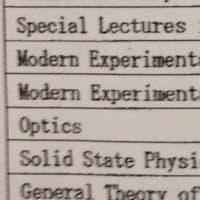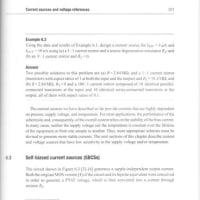Moreover, many of the traits affected by genes are far from noble.
Psychologists have discovered that our personalities differ in five major ways: we are to varying degrees introverted or extroverted, neurotic or stable, incurious or open to experience, agreeable or antagonistic, and
conscientious or undirected.
Most of the 18,000 adjectives for personality traits in an unabridged dictionary can be tied to one of these five differences, including such sins and flaws as being aimless, careless, conforming, impatient, narrow,
rude, selfpitying, selfish, suspicious, uncooperative, and undependable.
All five of the major personality dimensions are heritable, with perhaps 40 to 50 percent of the variation in a typical population tied to differences in their genes.
The unfortunate wretch who is introverted, neurotic, narrow, selfish, and undependable is probably that way in part because of his genes, and so, most likely, are the rest of us have tendencies in any of those directions
as comapared with our fellows.
It's not just unpleasant temperaments that are partly heritable, but actual behavior with real consequences.
Study after study has shown that a willingness to commit antisocial acts,
including lying, stealing, starting fights, and destroying property, is
partly heritable ( though like all heritable traits it is exercised more
in some environments than in others).
People who commit truly heinous acts, such as bilking elderly people out of their life savings, raping a succession of women, or shooting convenience store clerks lying on the floor during a robbery, are often
diagnosed with "psychopathy" or "antisocial personality disorder".
Most psychopaths showed signs of malice from the time they were children.
They bullied smaller children, tortured animals, lied habitually. and were incapable of empathy or remorese, often despite normal family backgrounds and the best efforts of their distraught parents. Most experts on psychopathy believe that it comes from a genetic predisposition, though in some cases it may come from early brain damage.
In either case genetics and neuroscience are showing that a heart of darkness cannot always be blamed on parents or society.
以上を要約せよ・・・
得点できない奇抜な要約・・・
遺伝なんて、正常やノーマルといったふつうのことからちょっと隔たることに影響を与えることが多いので、詰まんないものだ。
人よりある特性が際立っているのは、多分遺伝子に刻まれているからだし、我々は皆、母親の子宮で受精した瞬間に受け継がれている歴史を背負って生まれてきているのだ。
某霊能力氏の○原氏のような視線で霊視のようなことが、人々に信じられるのは、むしろ、ご先祖の形質を受け継いでいるという遺伝的な生物物理的な事実があるためだ。幽霊は、そもそも我々の細胞の中にいるのであり、その正体は遺伝子なのである。例えば、悪い癖があっても、それはひいおじいさんの特質だったものであり、お母さんが悪いのではないのである。別に、ひいおじいさんがのろいにかけているわけではなく。確率的に必ずそうなるのである。
社会が悪いから、テロをするのではない。テロを実行に移す行動特性や計画する才能が実現しているのである。
してみれば、歴史から学ぶというが、
それは科学的にも正しいということになる。
Psychologists have discovered that our personalities differ in five major ways: we are to varying degrees introverted or extroverted, neurotic or stable, incurious or open to experience, agreeable or antagonistic, and
conscientious or undirected.
Most of the 18,000 adjectives for personality traits in an unabridged dictionary can be tied to one of these five differences, including such sins and flaws as being aimless, careless, conforming, impatient, narrow,
rude, selfpitying, selfish, suspicious, uncooperative, and undependable.
All five of the major personality dimensions are heritable, with perhaps 40 to 50 percent of the variation in a typical population tied to differences in their genes.
The unfortunate wretch who is introverted, neurotic, narrow, selfish, and undependable is probably that way in part because of his genes, and so, most likely, are the rest of us have tendencies in any of those directions
as comapared with our fellows.
It's not just unpleasant temperaments that are partly heritable, but actual behavior with real consequences.
Study after study has shown that a willingness to commit antisocial acts,
including lying, stealing, starting fights, and destroying property, is
partly heritable ( though like all heritable traits it is exercised more
in some environments than in others).
People who commit truly heinous acts, such as bilking elderly people out of their life savings, raping a succession of women, or shooting convenience store clerks lying on the floor during a robbery, are often
diagnosed with "psychopathy" or "antisocial personality disorder".
Most psychopaths showed signs of malice from the time they were children.
They bullied smaller children, tortured animals, lied habitually. and were incapable of empathy or remorese, often despite normal family backgrounds and the best efforts of their distraught parents. Most experts on psychopathy believe that it comes from a genetic predisposition, though in some cases it may come from early brain damage.
In either case genetics and neuroscience are showing that a heart of darkness cannot always be blamed on parents or society.
以上を要約せよ・・・
得点できない奇抜な要約・・・
遺伝なんて、正常やノーマルといったふつうのことからちょっと隔たることに影響を与えることが多いので、詰まんないものだ。
人よりある特性が際立っているのは、多分遺伝子に刻まれているからだし、我々は皆、母親の子宮で受精した瞬間に受け継がれている歴史を背負って生まれてきているのだ。
某霊能力氏の○原氏のような視線で霊視のようなことが、人々に信じられるのは、むしろ、ご先祖の形質を受け継いでいるという遺伝的な生物物理的な事実があるためだ。幽霊は、そもそも我々の細胞の中にいるのであり、その正体は遺伝子なのである。例えば、悪い癖があっても、それはひいおじいさんの特質だったものであり、お母さんが悪いのではないのである。別に、ひいおじいさんがのろいにかけているわけではなく。確率的に必ずそうなるのである。
社会が悪いから、テロをするのではない。テロを実行に移す行動特性や計画する才能が実現しているのである。
してみれば、歴史から学ぶというが、
それは科学的にも正しいということになる。

























